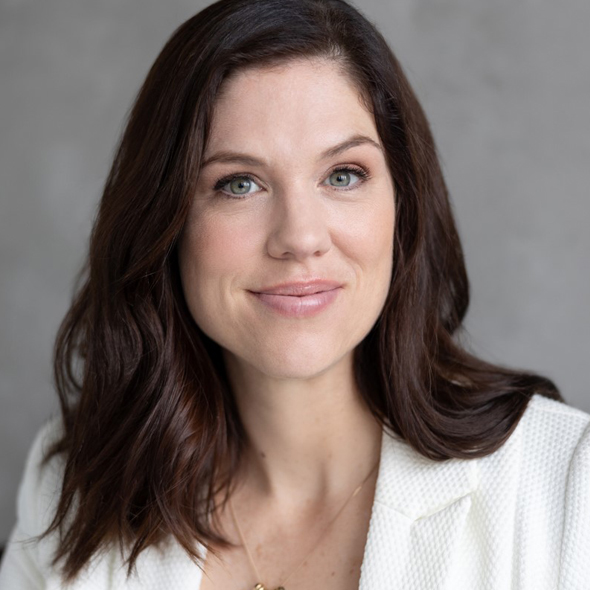Esme Bowen FAICD shares three of the most important board lessons she has learned.
Esme Bowen’s first board role came about through a life-changing event.
“One Friday in 1987, I left work as a spinal orthopaedic registered nurse,” she recalls. “By Sunday, I was back in ICU with a spinal injury. I’d been trapped inside the vehicle and couldn’t be moved until the ambulance arrived. I was very lucky to walk away from my injury.
“By the time I was discharged, I’d been invited to join the Spinal Injury Prevention Board. It was an unusual life experience, but from it came so much diversity in my career. I learned the value of lived experience as a director.”
Bowen received the AICD NFP Director Excellence Award in 2023, and was the WA Women’s Hall of Fame inductee in 2024. She is chair of the Carers Advisory Council WA and vice president of the Chamber of Commerce and Industry WA. She is also a director of the Australian Chamber of Commerce and Industry, Paraplegic Benefit Fund and Disability Assembly WA.
1. Do your due diligence before diving into a role
Thirty years ago, I was offered a position on a federated body’s national board and was so excited I took the opportunity without doing my homework. I asked for copies of the papers, but they never arrived. In my naivety and enthusiasm to be a part of this organisation, I didn’t see it as a red flag.
I attended the AGM and during the subsequent board meeting, it came to light that the chair had put his own money into the organisation to keep it afloat. I realised that financially, things were poor and I felt very uncomfortable.
I knew it wasn’t how an organisation should operate. As a director, I didn’t want to risk my reputation through my role on that board at that time. So, I resigned the next morning. At the time, everybody was horrified. I really believed in what the organisation was doing, but I couldn’t sit on a board that wasn’t in the right place financially.
About nine months later, I got a call from the chair asking me to return. After more intense due diligence, I was comfortable enough to return. I went on to chair the organisation for many years.
It was a good life lesson for me early in the piece. If you’re offered a board position prior to committing, do your own due diligence. Review the annual reports, board papers and financials, including insurance, and meet with the chair and other directors. Don’t assume things are going well.
2. Our boards should reflect the community they serve
A board’s decision-making abilities are enriched by having perspectives that genuinely reflect the communities they serve. It also reduces risk.
The CCIWA board is representative of directors from small, medium and large businesses in WA, which reflects our community and stakeholders. Without directors who intimately understand the WA business landscape, CCIWA wouldn’t be able to build towards their vision of WA as the best place to live and do business.
The Carers Council was an all-female, 10-member board. I was often the only female director on boards, but had never experienced this situation before.
However, often you don’t get a choice about becoming a carer, and 30 per cent of all carers are men. These are unpaid roles, caring for those who are aged, disabled or have a mental health issue. It could also include cancer or palliative care.
We can’t put every carer on a council, but we strive to reflect the community as best we can. I felt male carers needed to be represented at a table that’s making decisions about carers.
Over time, the minister appointed three male directors, each of whom has lived experience as a carer. I’m a great believer in having direct experience at your table because you can’t make decisions for your board’s purpose if you don’t have people at the table with that unique understanding.
3. Not-for-profit is a misnomer
Sometimes, as directors, we are misled by the term “not-for-profit”. You might step up to the role, which is usually voluntary, with the idea that the organisation shouldn’t be making money. However, enthusiasm and a love for the mission doesn’t sustain an organisation.
To have a healthy organisation of any purpose requires sound financials. Like any good business, an NFP needs a margin, as well as a buffer zone for those times when unexpected costs come up — because they always do. No one saw COVID coming, but there are more common scenarios, such as the rent of your premises increasing or an unexpected insurance claim. It is important to have a bit of reserve for those times. A better term is “for purpose” — and those organisations must be run like a successful business in order to be sustainable.
We need to remove the misnomer of being an NFP. For example, if you’ve got members, then you have a responsibility to those members who pay fees to manage the organisation in a constructive and sustainable manner. The organisation should have this financial security for longevity of its constitutional purpose.
This article first appeared under the headline '3x3’ in the September 2025 issue of Company Director magazine.
Latest news
Already a member?
Login to view this content



.jpg)